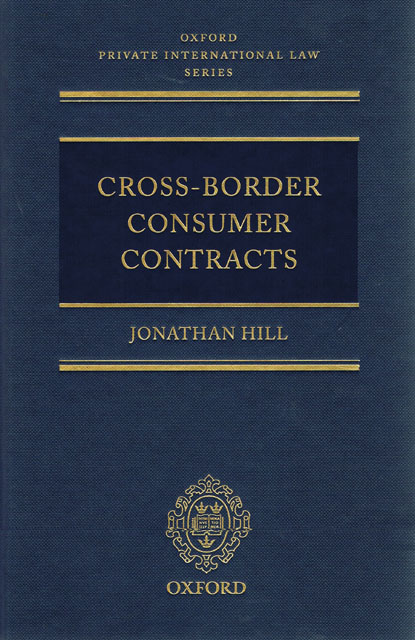We are now closed for the Christmas and New Year period, returning on Monday 5th January 2026. Orders placed during this time will be processed upon our return on 5th January.

Until relatively recently, almost all contracts were domestic: both the consumer and the supplier were from the same country and the situation involved no substantial foreign elements. Technological changes (in terms of international travel, means of communication and information technology) have meant that it is a more frequent occurrence for consumer contracts to involve a cross-border dimension.
This book explores the legal regimes which seek to deal with disputes which arise out of such cross-border consumer contracts. In terms of private international law, English law traditionally treated consumer contracts no differently from commercial contracts. However, at European level, jurisdictional and choice of law issues arising out of certain consumer contracts are subject to specific rules. The first part of the book focuses on these European developments and seeks to explain why the private litigation model for the resolution of disputes arising out of cross-border consumer contracts has failed to deal adequately with the problems generated by such contracts.
Subsequent to these failures, alternative mechanisms for resolving contractual disputes have a particular significance in the consumer context. The second part of the book focuses on an evaluation of these alternative dispute resolution mechanisms, including online dispute resolution.